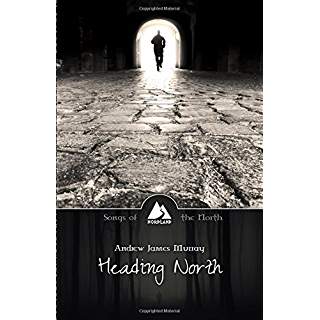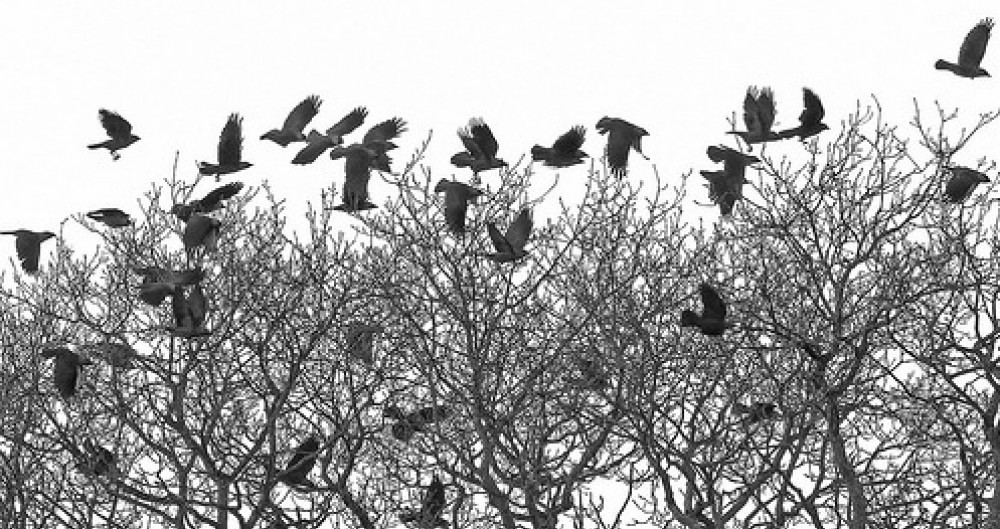As I said in my previous post, I’m not normally one who gives explanations about the poems that I write as I prefer readers to take from them what they will. I don’t think my stuff is obscure enough to warrant that.
But, after the publication of my collection Heading North, I’ve been interested to hear about some of the interpretations that readers have deduced from the poems within.
I used to be a postman, and on my round I had to deliver to several blocks of flats. While I was moving up and down the stairs in these flats, the graffiti on the walls would often catch my eye, particularly the humorous and the unique.
A lot of it, though, were candid (or perhaps false) disclosures of who was doing what to who. I think you can gather what I mean. From these squalid revelations was born the poem News On A Stairwell:
Sated on the stories of others, fed in passing on casual affairs. On stairwells, glancing, their legible wares are traded second hand for faltering steps, and behind hand murmurs of shallow cares, where dead unions play on, play on, laughing. In salacious nooks their small town shagging goes on, on walls, spread everywhere.
My wife, bless her, was not too impressed by my use of the ‘s’ word. But, as I told her, the people who wrote these things didn’t use words like fornicate or copulate, so to be authentic it had to be either the ‘s’ word or the ‘f’ word.
A reader commented about this poem, asking if it was referring to Facebook. As I’ve already explained it wasn’t, and this poem had its roots before Facebook existed, but I liked that idea. Things have evolved — these days that type of gossip and dirty laundry are indeed shared on Facebook walls for all and sundry to feast upon Same shenanigans, different walls.
That works too. I’m cool with that.
Another poem, called Summer Boys, has its roots in a childhood memory of the place I used to live. A blazing hot summer in the seventies, I was playing with a couple of other now nameless and faceless children upon a croft, weeds growing amongst the red brick. I can still smell the breeze and the flowering thistles, feel the sun shining down on us, when we suddenly heard the music and fanfare of a passing parade. We dropped everything and shot off excitedly after this blaze of movement and colour. The poem ends with:
. . . only to be banished when a passing parade calls them, flying over stony croft. They follow behind in a winding line, lost and in thrall to the piper's call.
A reader took this to be a comment on all of the young people today who feel the call to join the military, being led away to these war torn places.
All of us live in context — both the writer and the reader. To me it was a fond memory from a moment in my life, to the reader it was a reference to current affairs in her life.
A similar interpretation took place with the poem called New Year, Morning. The poem begins with the lines:
Half the world is hurting, turning its face to shadow.
These lines came to me when I was walking my dog early on New Year’s Day. The streets were empty, not a soul in sight, hence also:
The sky is leaden. The streets are all unchartered lanes.
A reader deduced from those two opening lines about the world hurting a comment, again, upon the state of things at the time, what with all of the conflicts and natural disasters that were ravaging the world. She mentioned Iraq, Afghanistan, etc. The truth is that I had no such global thoughts in mind. I was actually thinking of all the hidden people inside those houses still in bed, struggling with the effects of over-drinking on New Year’s Eve.
But I do have to say that I love all of these interpretations. People make connections with poetry, lines conjure images and emotions in the hidden parts of our being. Rather than feel the need to correct the interpretations given (even though I’ve mentioned them here purely to highlight the point), I feel that I have made the right decision.
These are my words, my conjuring. Breathe them in and see what you will.


I had the same interpretation of the piper’s call. I guess we can’t help putting our own life’s spin on whatever we read.
LikeLiked by 3 people
Yes that’s right. And equally as valid.
LikeLiked by 1 person
That’s what art in any form is for. For people to interpret the way they want. There’s no rules for how to interpret. The examples you give shows that your words are timeless. It is how art should be 🙂
LikeLiked by 2 people
Spoken like a true artist.
LikeLiked by 2 people
🤗
LikeLiked by 1 person
Pingback: Colorful day for friendship – Annas Art – FärgaregårdsAnna
I always enjoy a ‘process’ reveal in creating one’s (he)art. Thanks for the peek.
LikeLike
I have a similar curiosity, often seeking out other creative people’s explanations on how they receive, and act upon, inspiration.
LikeLike
Pingback: Check This Out: Mythos | El Space–The Blog of L. Marie